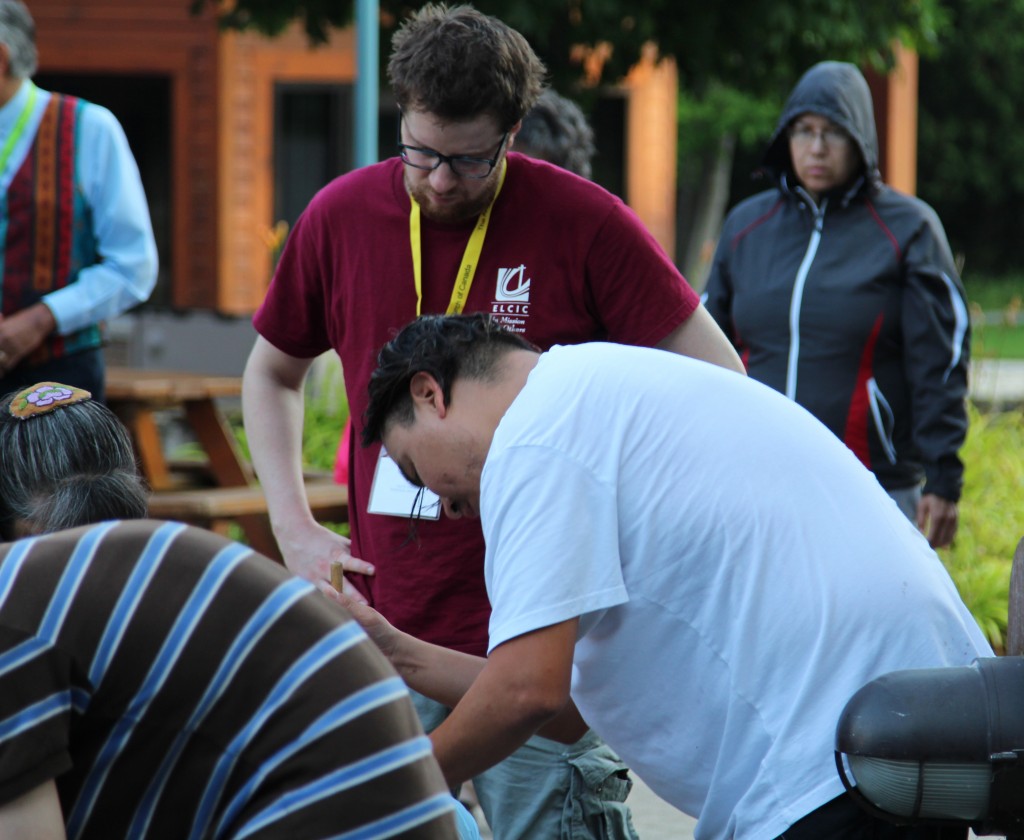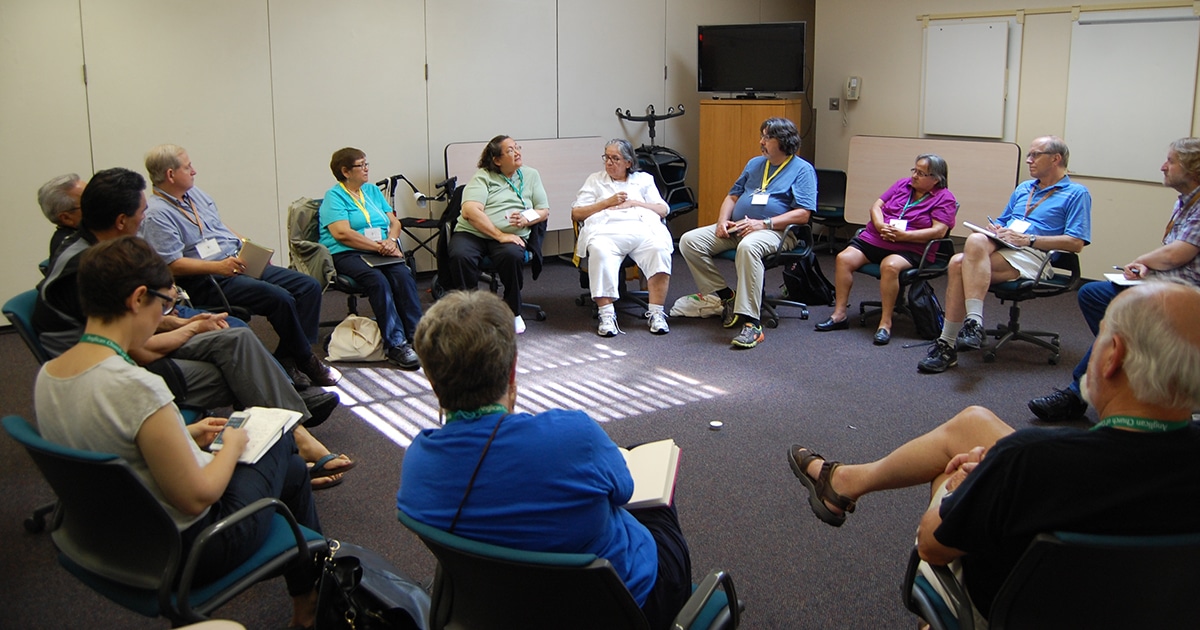The value of listening was an important lesson drawn from the Truth and Reconciliation Commission of Canada.
Reconciliation between Indigenous and non-Indigenous people, the Commission argued, required listening to the stories of those who endured the intergenerational trauma of the Indian residential school system.
For non-Indigenous members of the Anglican Church of Canada, a similar lesson has unfolded in recent decades. As the church grappled with its historic role in administering residential schools, the voice of Indigenous Anglicans grew stronger in calling for a new relationship based on self-determination.
This background is at the forefront of my mind as an official listener at the eighth national Anglican Indigenous Sacred Circle in Port Elgin, Ont.
Attending Sacred Circle would be a learning experience for any Anglican. But for a non-Indigenous church employee specifically tasked with listening, the event provides a golden opportunity for “turning [my] ear to wisdom and applying [my] heart to understanding.” (Proverbs 2:2)
The Sacred Circle handbook states that the duty of a listener is to “participate in the life of the Circle as appropriate … to listen and then tell the Circle what they heard.”
While reporting on the Sacred Circle for Anglican.ca, my boundaries of participation remained vague and undefined on the dawn of Aug. 17 as I watched volunteers attempt to light the Sacred Fire.

When fire-keeper Steven Darden called for any young men to help, I was unsure at first whether or not I could join in. Approving nods inspired me to help others rubbing the wooden spindle on the fireboard, and I felt the bond with my fellow volunteers grow as we tried to set the tinder nest alight.
As would be the case over the ensuing days, when I sat in on Talking and Listening Circles, mostly staying silent and taking down notes for group representatives, my main goal was to support those around me while learning as much as I could.
The second full day of Sacred Circle on Aug. 18 offered just as much opportunity in that regard as the first. Breaking into Talking Circles for gospel-based discipleship early in the morning, I listened to interpretations of Matthew 19:23-30 that highlighted the richness of God’s blessings and the signs that often point to it.
In the afternoon, I joined a Learning Circle on Indigenous Urban Ministry and learned about the varied experiences of Anglicans engaged in ministry with Indigenous city residents.
Participants noted the difficulty of city life for Indigenous people who are in a period of transition. With the comfort of reserve land gone, they often feel alone and turn to the church to find some sense of security and peace.
A repeated theme, however, was that many Indigenous people, despite often feeling a spiritual hunger following the residential school experience, do not feel welcomed as members of the church “family”—an unfortunate reality that must be addressed.
Listening paid particular dividends during a panel by members of the Primate’s Commission on the Doctrine of Discovery, Reconciliation and Justice.
Some of the most important lessons came from commission member Sol Sanderson, who offered a vivid history of how the seeds of prejudice, discrimination and cultural genocide embodied in the Doctrine of Discovery led to successive offensives by the Canadian government against Indigenous peoples—from residential schools to the 1969 White Paper—in effort to “solve” the “Indian problem.”
As a former chief of the Federation of Saskatchewan Indian Nations, Sol knew the destructive impact of colonial policies and the difficulty of lasting political change yet maintained an infectious optimism, with delegates applauding his statement that we must “de-colonize that Anglican Church one way or the other.”
Broaching the challenge of how the Anglican Church of Canada would implement reconciliation, Rev. Andrew Wesley sounded a common theme—the need to listen to residential school survivors, their families and their communities, and to learn about the Indigenous relationship with creation and the land.
I look forward to more listening and learning myself as Sacred Circle continues.
Interested in keeping up-to-date on news, opinion, events and resources from the Anglican Church of Canada? Sign up for our email alerts .

